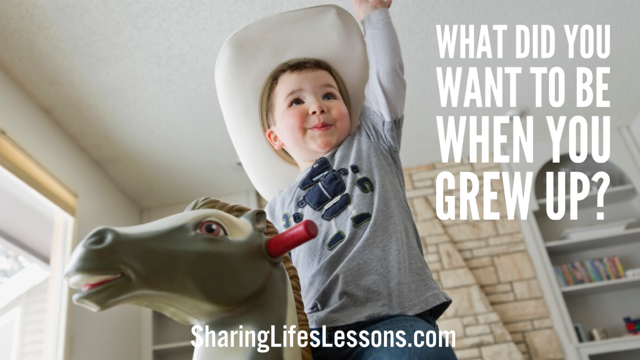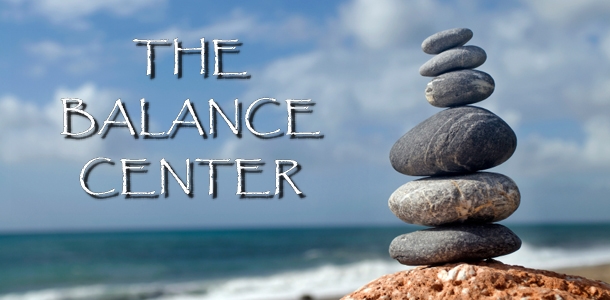What did you want to be when you grew up?
- 21
- June
- 2023

Think back to when you were a child. We’re going to get a bit personal here by asking, what did you really want to be when you grew up? Did you want to be a nurse, a doctor, firefighter, cowboy, or something else? These are some answers that children often give for their choices.
I, (Lynn), have been a psychologist and success coach for many years. I remember little children coming to sessions with their parents. The children often wanted to be something special, like a unicorn. They were normal children in normal families and to my knowledge none of them grew up to be a unicorn. Also, with the other professions children suggested, they usually didn’t end up in those occupations they so desired as a child. Let’s look at what influences people to make choices.
First, we’re influenced by repeated messages. When we hear a message over and over it sticks in our brain and influences our decisions. Marketing companies spend tons of money to come up with a catchy tagline that you will remember, repeat to yourself and maybe even to others. Children’s minds are especially impressionable.
As I (Doug) was growing up, I remember listening to a couple of famous cowboys by the name of Gene Autry and Roy Rogers. I thought that looked like an exciting life. After all, I already had a cap gun pistol. Obviously, I never went to cowboy school. I went on to be an attorney and a success coach.
It’s easy to be influenced by what’s around us. Marketers have some strong influencing messages that use a couple of techniques. One technique is ‘hope to gain’ and the other is ‘fear of loss’. Fear of loss is much stronger. These strategies aren’t new. In the 1700’s Sir Edmund Burke realized this when he said, “No passion so effectively robs the mind of its process of acting and resonating as fear.”
A second influence is the age of the person which affects the level of brain development. As we grow up, the brain develops further. We are influenced differently than when we were a child. The Bible, I Corinthians 13:11 says, “When I was a child, I spoke as a child, I understood as a child, I thought as a child; but when I became a man, I put away childish things.” This also refers to women.
Susan Y. Brookheimer, PhD does a good job of clarifying brain development and how it affects thinking and choices. Research shows that, as a person matures, the brain can handle more and more complex tasks. We learn how to differentiate what matters and what doesn’t matter. During adolescence, a time of change, there is often some confusion. There are different messengers such as hormones and neurotransmitters that can help the body and brain work together. These affect feelings, decisions, and ultimately, actions
One big concern when children are left to make their own choices, is that the brain is not fully developed enough to make good choices. In fact, Dr. Brookheimer says that the frontal lobe, which is known to be active in good decision-making, is not fully developed until people reach their late twenties.
The third thing that helps brains make better decisions is life experience. When you have experience doing things, you learn from the result. The next time you’re able to make choices, either the same or better. In other words, the more life experience, generally the better choice. Einstein puts it this way, “The only source of knowledge is experience.” We agree, experience is important, but we see that people also need to have a brain that’s developed enough to be able to accurately process that knowledge.
With the many influences on the brain, especially an immature brain, here’s where good parenting or good mentoring comes in. Appropriate boundaries can be set to help the young person hold off on life-altering decisions, especially those decisions that can’t be reversed. To avoid regrets, it’s helpful to put off these decisions until the brain has fully matured and is more functional.
What about you? What did you discover about what you wanted to be when you grew up? Did it stay the same or did your dreams change as you matured? What we do know is that as we grow up and our brain fully develops, we can make better choices. We hope you’re happy with results of choices you made on your life journey as you grew up. If not, know that you can still grow, learn, and make good choices for your best life.
Chanhassen MN residents, Doug and Lynn Nodland are success coaches and owners of The Balance Center in Excelsior. Contact them at WeCare@TheBalanceCenter.com
© Doug and Lynn Nodland 2023 Articles and videos may be shared in their entirety with attribution.
Search:
Categories
Archives
- April 2024
- March 2024
- February 2024
- January 2024
- December 2023
- November 2023
- October 2023
- September 2023
- August 2023
- July 2023
- June 2023
- May 2023
- April 2023
- March 2023
- May 2021
- April 2021
- March 2021
- February 2021
- January 2021
- December 2020
- November 2020
- October 2020
- September 2020
- August 2020
- July 2020
- June 2020
- May 2020
- April 2020
- March 2020
- February 2020
- January 2020
- December 2019
- November 2019
Contact Us
Doug Nodland J.D.
684 Excelsior Boulevard
Suite 120
Excelsior, MN 55331
952-452-2664
WeCare@TheBalanceCenter.com

